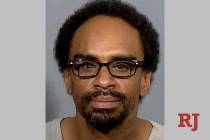Supreme Court gives banks foreclosure win
The Nevada Supreme Court has sided with banks by validating a key cog in the foreclosure enforcement machinery that has sparked legal disputes all over the country.
In a 26-page ruling delivered Thursday, all seven justices agreed that hundreds of thousands of home mortgages in the state involving the Mortgage Electronic Registration System Inc. could be put into foreclosure after technical adjustments.
As foreclosures mounted in the past five years, consumer groups and attorneys have targeted MERS as hiding the identity of the actual lender, making it difficult to work out new mortgage terms, while not properly holding an interest in a loan.
Incorporated by banks in 1995 and still owned by them, MERS is a database that tracks mortgages for its members as they pass among different owners, sometimes as part of securities that bundle hundreds or thousands of loans into one package.
In doing so, MERS has dispensed with the long-standing requirement that a lender file papers with a county recorder every time a loan changes hands.
PATH CLEARED FOR FORECLOSURES
"I think it is good that MERS has been validated," Nevada Bankers Association President William Uffelman said. "The whole thought behind it was bringing loan recording into the 21st century."
And the industry has argued that MERS cuts administrative costs and makes loans more attractive to investors by making them easier to sell or trade. This, in turn, is supposed to draw more money into the mortgage market.
But homeowners who are struggling with mortgage payments or have defaulted have found they could not face the actual lender when MERS was involved.
As a result, its legal standing to carry out a foreclosure has faced federal and state court challenges in dozens of jurisdictions.
In Nevada, attorney Jacob Hafter said, who argued the case for homeowner David Edelstein, "the court has cleared a path to begin foreclosing in a mass effort."
Hafter said he has several other MERS-related cases that he considered stronger but have now been cast in doubt.
"I think the court basically took the (Edelstein) case to say they are not going to let homeowners get out of paying on their mortgages on a technicality," he said.
Under Nevada law, a home loan is split into a promissory note, the actual loan and a deed of trust that functions as the security for repayment. The lender must hold both the note and the deed to carry out a foreclosure.
However, a lender that is a MERS member will assign control of the deed to MERS, making it an agent that is legally called a beneficiary.
MERS keeps that status, able to act on a lender's behalf, no matter how many times a loan changes hands.
AFFIRMATION OF MERS
Hafter had argued that once a loan has different note and deed holders, it is permanently flawed and precludes foreclosure.
But the court concluded that returning the deed to the lender that holds the note fixes the defect, which is what happened in Edelstein's case.
"Because nothing in Nevada law prohibits MERS' actions, we reject Edelstein's argument," the court wrote.
MERS spokeswoman Janis Smith, in a statement, said: "There is no stronger affirmation of MERS' role in housing than a unanimous decision concluding that MERS is the proper beneficiary and affirms MERS agency relationship to the note holder."
Underscoring the split over how to deal with MERS, U.S. Bankruptcy Court Judge Linda Riegle issued a ruling in Las Vegas in 2009 that it could not represent lenders unless it could produce a note. However, this applied only to homeowners in bankruptcy.
Contact reporter Tim O'Reiley at
toreiley@reviewjournal.com or 702-387-5290.























